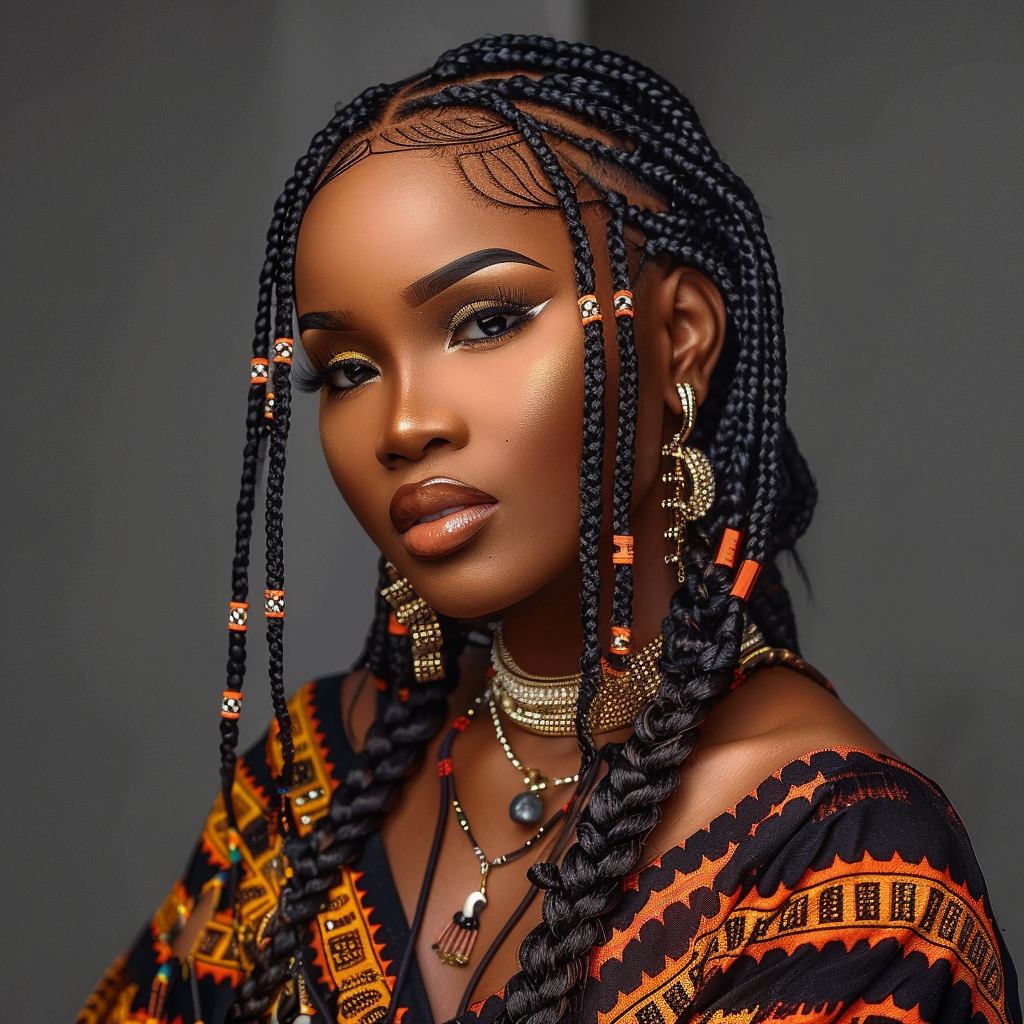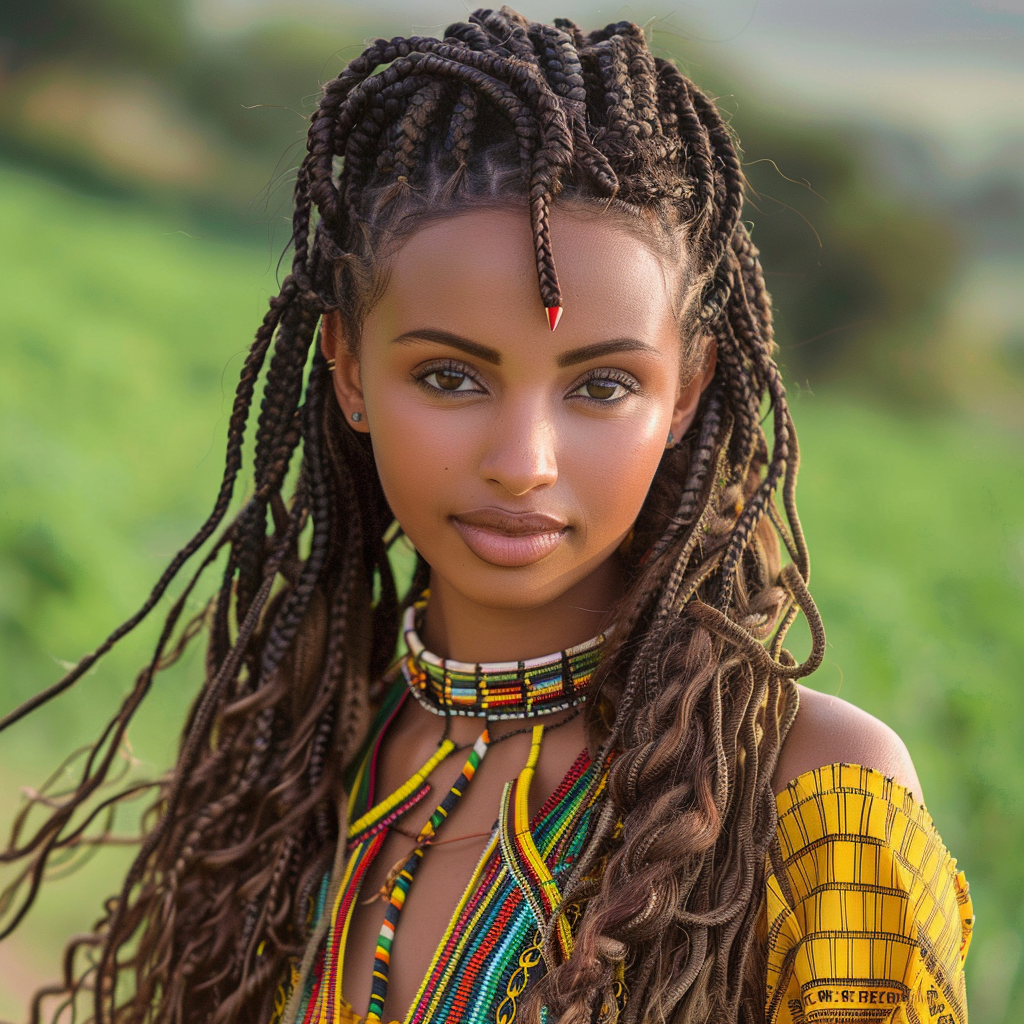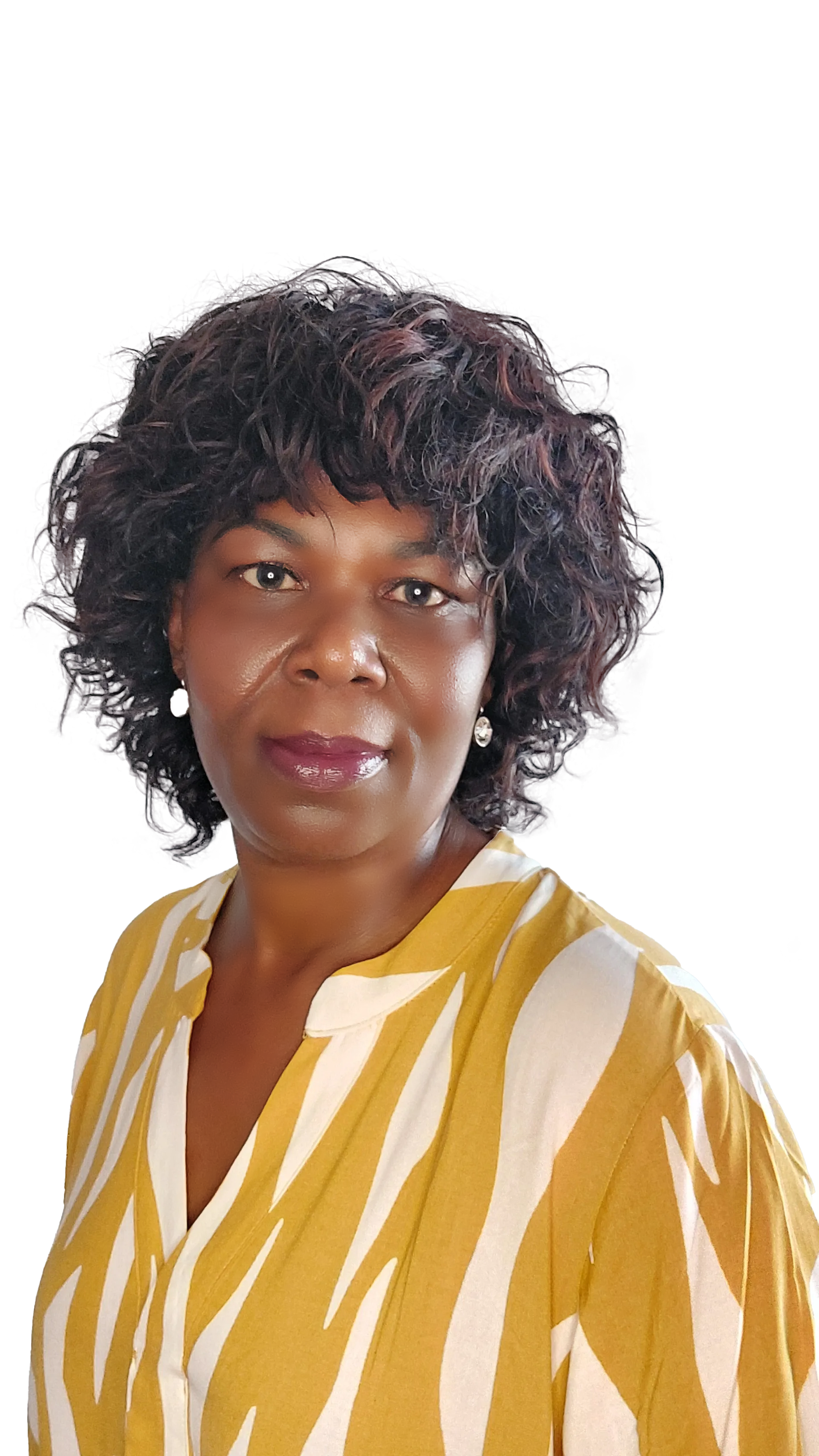
Beauty is a concept that transcends physical appearance, deeply rooted in cultural identity, history, and societal norms. For black women, beauty standards and practices have been influenced by a rich heritage of African traditions, historical experiences, and contemporary cultural shifts. This article explores the cultural influences on black women’s beauty, highlighting the evolution of black beauty culture and its significance today.
The Historical Roots of Black Beauty Culture
Black beauty culture is deeply intertwined with the history of the African diaspora. Traditional African beauty practices have always emphasized natural elements and holistic care, using ingredients such as shea butter, coconut oil, and black soap. These natural resources have been utilized for centuries to maintain skin health and enhance natural beauty.
Hair as a Cultural Symbol
In many African cultures, hair is not just about aesthetics but a symbol of cultural identity and social status. Intricate braiding patterns, twists, and locs have been used to signify tribal affiliation, marital status, age, and wealth. These hairstyles are not only beautiful but also rich in cultural significance.
The Impact of the Transatlantic Slave Trade
The transatlantic slave trade had a profound impact on black beauty culture. Enslaved Africans brought their beauty practices to the Americas, where they adapted to new environments and available resources. Despite the harsh conditions, they maintained their cultural heritage through hair care practices and the use of natural ingredients.

The Struggle for Beauty Autonomy
During slavery and the Jim Crow era, black women faced immense pressure to conform to Eurocentric beauty standards. Straight hair and lighter skin were often viewed as more desirable, leading many black women to use harsh chemicals to straighten their hair and lighten their skin. This period was marked by a struggle for autonomy over their own beauty.
The Rise of the Natural Hair Movement
The Civil Rights Movement of the 1960s was a pivotal moment for black beauty culture. The natural hair movement emerged as a powerful statement of pride and resistance against Eurocentric beauty norms. Icons like Angela Davis popularized the afro, symbolizing black pride and defiance.
Embracing Natural Beauty
The natural hair movement encouraged black women to embrace their natural hair textures. This movement was about more than just hairstyles; it was about reclaiming identity and rejecting societal pressures to conform. The resurgence of natural hair continues to this day, with a growing number of black women choosing to wear their hair in its natural state.
Modern Influences on Black Beauty Culture
Today, black beauty culture is a dynamic blend of traditional practices and modern influences. The internet and social media have played a significant role in the dissemination and evolution of black beauty practices.
The Role of Social Media
Platforms like Instagram, YouTube, and TikTok have become vital spaces for black women to share beauty tips, tutorials, and product reviews. Influencers and content creators have used these platforms to celebrate black beauty, promote natural hair care, and introduce innovative styling techniques.
Black-Owned Beauty Brands
The rise of black-owned beauty brands has been a game-changer. Brands like Fenty Beauty by Rihanna, SheaMoisture, and Mielle Organics have created products specifically designed for black women’s skin and hair. These brands have also emphasized the importance of representation in the beauty industry.
Celebrating Cultural Heritage in Beauty Practices
Embracing black beauty culture involves celebrating the rich heritage and diverse practices that have been passed down through generations. Here are some key elements that continue to shape black beauty today.
Traditional Ingredients
Natural ingredients like shea butter, coconut oil, and aloe vera remain staples in black beauty routines. These ingredients are celebrated not only for their effectiveness but also for their cultural significance. Using these ingredients connects black women to their ancestral roots and promotes a sense of continuity and tradition.
Protective Hairstyles
Protective hairstyles such as braids, twists, and locs are not only practical but also culturally significant. These styles protect natural hair from damage, encourage growth, and allow for creative expression. They are a testament to the ingenuity and resilience of black women in maintaining their hair’s health and beauty.
Makeup for Melanin-Rich Skin
The beauty industry has seen a significant shift towards inclusivity, with more brands offering products that cater to a wide range of skin tones. This shift is crucial for black women, who often struggled to find makeup that matched their skin. Celebrating melanin-rich skin with foundation shades, concealers, and highlighters that enhance natural beauty is an essential aspect of black beauty culture.
The Future of Black Beauty Culture
As black beauty culture continues to evolve, it remains a powerful tool for self-expression and cultural pride. The future of black beauty lies in continued innovation, representation, and a deep connection to cultural heritage.
Innovation in Hair Care
Advancements in hair care technology and products are making it easier for black women to care for and style their natural hair. From innovative hair tools to new product formulations, the future looks promising for natural hair enthusiasts.

Representation in Media
Continued representation of black beauty in media and advertising is crucial. Seeing diverse beauty standards in mainstream media helps to normalize and celebrate black beauty. This representation fosters a sense of pride and belonging among black women and girls.
Global Influence
Black beauty culture is not confined to one region but has a global impact. The diaspora has spread African beauty practices worldwide, influencing beauty trends in the caribbean islands, Europe, the Americas, and beyond. This global exchange enriches the beauty industry and promotes cross-cultural appreciation.
Conclusion
Black beauty culture is a rich, dynamic, and evolving heritage that celebrates the unique beauty of black women. From historical roots to modern influences, black beauty practices are deeply intertwined with cultural heritage and identity. By embracing traditional practices, supporting black-owned brands, and promoting inclusivity, black women continue to redefine beauty standards on their own terms.
Celebrating black beauty culture is about honoring the past, embracing the present, and looking forward to a future where every black woman can feel confident and proud of her natural beauty. Let’s continue to support and uplift each other, fostering a community that celebrates the diverse and beautiful expressions of black beauty.
Ready to dive deeper into black beauty culture? Share your favorite beauty practices and tips in the comments below, and don’t forget to subscribe for more inspiring and educative content on embracing and celebrating black beauty. Let’s continue to honor and elevate the rich traditions that make black beauty culture so unique and powerful.


